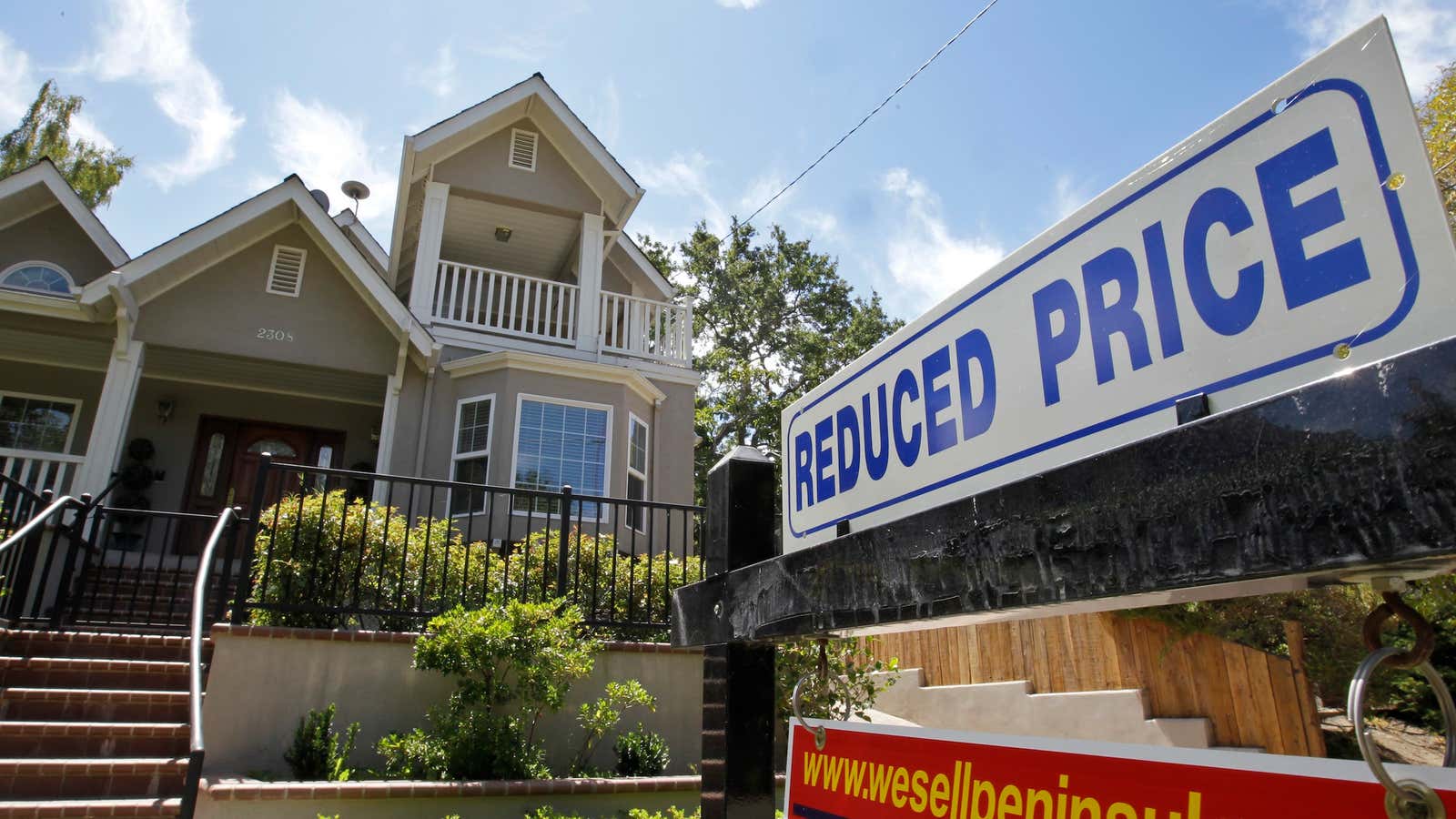It’s not yet clear if the class-action lawsuit on behalf of US homeowners against the world’s biggest banks has merit. But even if it does, it’s unlikely to see the light of day in a US court.
On Oct. 4, a lawyer filed the suit in a US federal court in New York on behalf of US homeowners, alleging that 12 banks, including Bank of America, Barclays, Citigroup, and Deutsche Bank, manipulated LIBOR, a benchmark used to set interest rates on everything from complicated financial products to simple home mortgages. As a result, says the claim, interest rates rose and ordinary homeowners like Annie Bell Adams (a plaintiff in the suit) lost thousands of dollars and eventually her home when her bank foreclosed.
There’s little question here that banks behaved badly. The LIBOR scandal is old news by now and banks are paying for their involvement. At Barclays, for example, top executives resigned and the bank paid about $450 million in fines to US and UK regulators.
As the regulators make more investigations and extract further plea bargains, they create a treasure trove of damaging documents that lawyers can use to sue the banks. “It’s like Christmas has come all at once for plaintiff lawyers because they have their case right in front of them,” says Tristan Hall, a lawyer with Sedgwick in London, whose firm published a paper on LIBOR-related lawsuits.
Lawyers just can’t resist a big-ticket suit. Dozens of lawsuits have been filed by investors, traders, and pension funds against LIBOR member banks. Most relate to the purchase of financial products tied to LIBOR rates. The American investment advisory firm Charles Schwab has filed lawsuits against several banks claiming violations of antitrust, racketeering and securities laws. Now class-action suits on behalf of homeowners are beginning to appear as small-time lawyers jump on the LIBOR bandwagon hoping to score big.
Homeowners, however, shouldn’t start spending the money. They face significant hurdles. The first is that it’s far from clear how much they have lost.
The LIBOR scandal was actually two scandals. One was that, over a decade, traders at various banks allegedly colluded to manipulate LIBOR rates to suit their trading books—sometimes higher, sometimes lower. The lawsuit alleges that they consistently pushed rates up on the first of every month, when the rates of adjustable-rate mortgages—which are determined by LIBOR—were updated, so that the banks would make more money on the mortgages. These rate increases were tiny (one or two basis points), but the plaintiff’s lawyer says it all adds up over the years. Proving that will require not only doing the math, but proving deliberate intent by the banks to defraud homeowners.
However, the second LIBOR scandal was that during the financial crisis, banks consistently reported considerably lower borrowing rates than they actually obtained, to disguise the extent of their financial stress. This would have translated into cheaper mortgages, and homeowners would have benefited. So overall, it’s far from clear how many homeowners lost out. ”My sense is that a lot of suits are being chucked in there, but without a lot of analysis on whether people are really suffering a loss,” says Hall.
And even if they can show they lost money, there is a technical obstacle. Making it a class-action lawsuit means that lawyers are seeking to package together hundreds, perhaps thousands, of small claims in order to justify the costs of fighting the big banks. For this to be allowable in court, all the underlying lawsuits have to be substantially similar. But mortgages differ a lot and it will be difficult to prove that the many individual plaintiffs were all harmed in the same way.
For the moment, the cases have all been consolidated before a judge in New York to get a consistent ruling. The judge is reviewing motions to dismiss by the banks. If she rules the homeowner claims are substantially similar, the cases can continue and the banks will face an enormous headache; if she believes they are too disparate, the cases will be dismissed. In that case, homeowners will have no recourse other than suing the big banks individually. Good luck with that.




